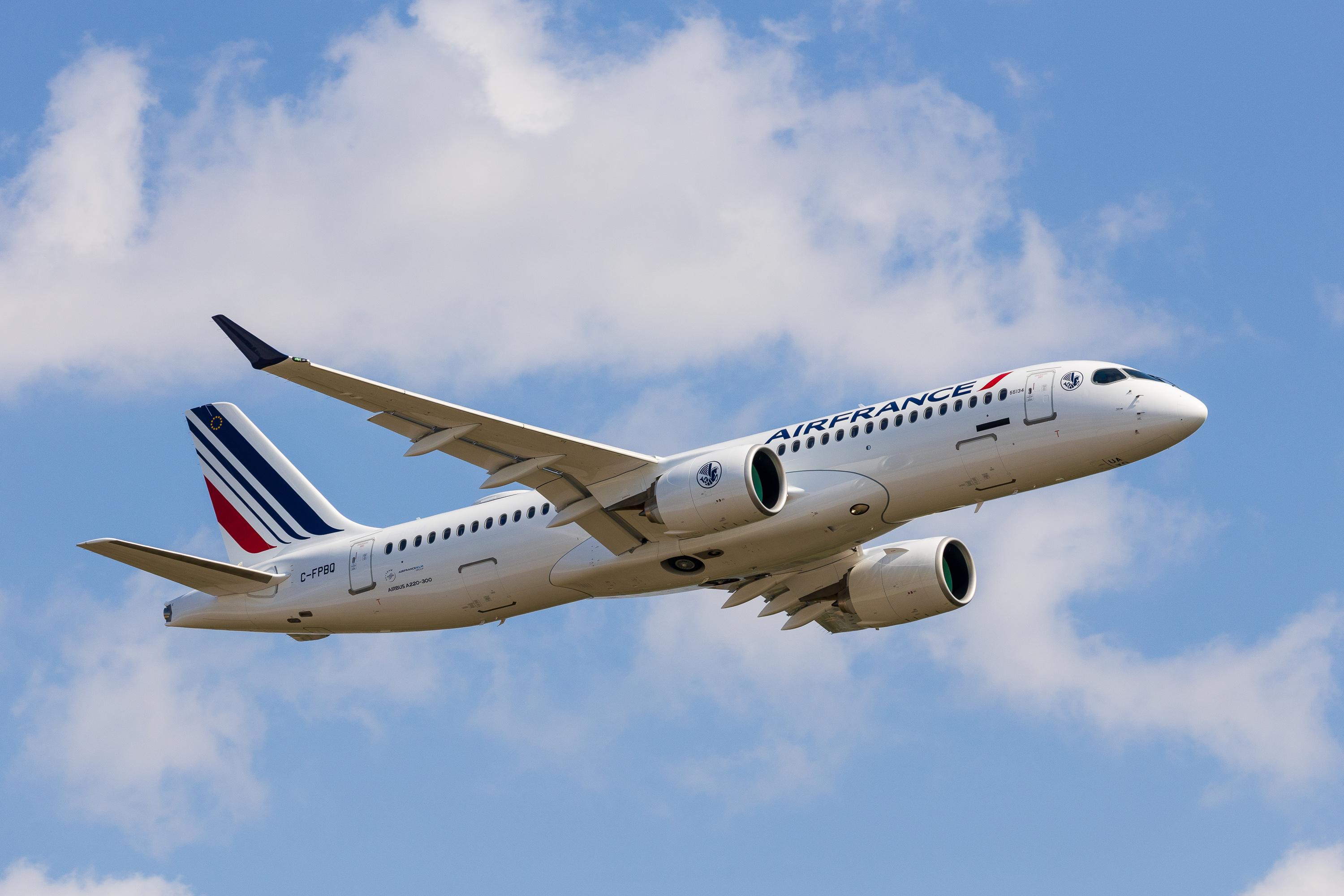Air France-KLM Sees Pilot Training Backlog As More Pressing Than Engine Shortages

Air France Airbus A220.
ISTANBUL–Air France-KLM’s CEO sees a pilot training backlog as a more pressing issue for the group than the engine shortages that are having a significant impact on some other airlines.
“We have some airplanes that are late,” Ben Smith told journalists on the sidelines of the IATA AGM in Istanbul. “Luckily, unlike the US, we don’t have the pilot shortage. For us it’s more a training backlog. Training pilots is the number one issue we have.”
Smith said the airline group has enough pilots, cabin crew and ground staff. “For us it’s more how do we get through as many pilots as we can from a training perspective,” he said.
Demand for mechanics is also strong, with many different parts of the industry, not just airlines, competing for qualified personnel. “However in France a lot of people who have that expertise want to work for Air France,” Smith said.
The group, which has taken delivery of 25 of the 60 Airbus A220s it has on order, is not being affected as much as some other airlines by problems with its Pratt & Whitney engines.
Lufthansa CEO Carsten Spohr said last month that he expected engine shortages to have a massive effect on group airlines, with one third of SWISS’ A220 fleet grounded at the time.
Smith said “a couple” of the 25 A220s Air France has taken delivery of so far were not flying because of the lack of engine spares.
The A220s are in the process of replacing Air France’s A318s and A319s, and that transition provides an advantage for operations, with the airline able to keep operating them for longer than planned if necessary.
Air France expects to have all 60 A220s by the end of 2025.
“The engine has got a few teething problems. It’s not a safety issue but the engines have to be taken off wing more often than they should be, so there’s a spare issue because they’re coming off faster. But overall the plane is a great plane,” Smith said.
Regarding fleet replacement of A320s and A321s, “We will make a decision in the coming years for the slightly larger aircraft. For the A320s and A321s, we have time,” Smith said.
Smith said the airline group was prepared for a better summer than that of 2022, when demand was strong but staffing shortages in many areas, including ground handlers and security staff at airports, caused major disruptions.
“Operationally we feel better, we’ve had time to prepare. Last year the demand came back very quickly on many fronts and many of the third parties we depend on, even ourselves, we weren’t ready for the traffic surge. This year we’re as prepared as we can be and we’re putting a lot of pressure on a lot of the systems and services we depend on,” Smith said.
Smith said the situation regarding the ramp-up of flight capacity between France and China was “OK, so far.”
Air France-KLM has been calling for a gradual increase in capacity of flights between the two countries to avoid European airlines being put at too much of a disadvantage.
“It’s a bit early to tell. We find it’s quite a challenge to be in a situation where it’s not a level playing field. We’ve been well represented by the French state to try to put a balanced policy in place,” Smith said. “So far it’s OK, other than the fact that customers can choose to fly a Chinese carrier and it takes three hours less. But they’re overflying Russia so that’s the customer’s decision what they want to do.”
Air France has confirmed plans to operate daily into Beijing and Shanghai from the summer.
“We’ll see what the Chinese carriers are doing. We have a good service in operation out of Amsterdam as well but the impact is not nearly as great there,” Smith added.
